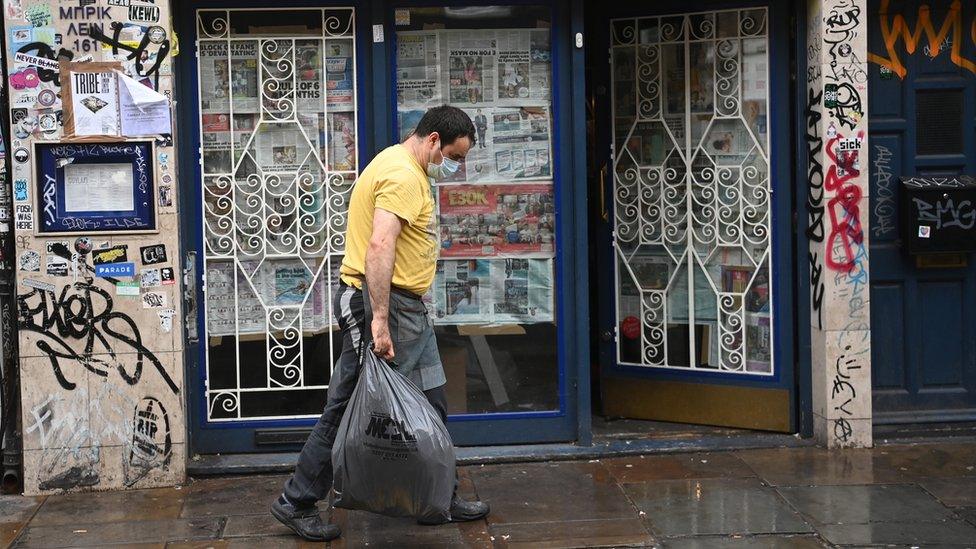UK growth slows again in October as rebound stalls
- Published
- comments
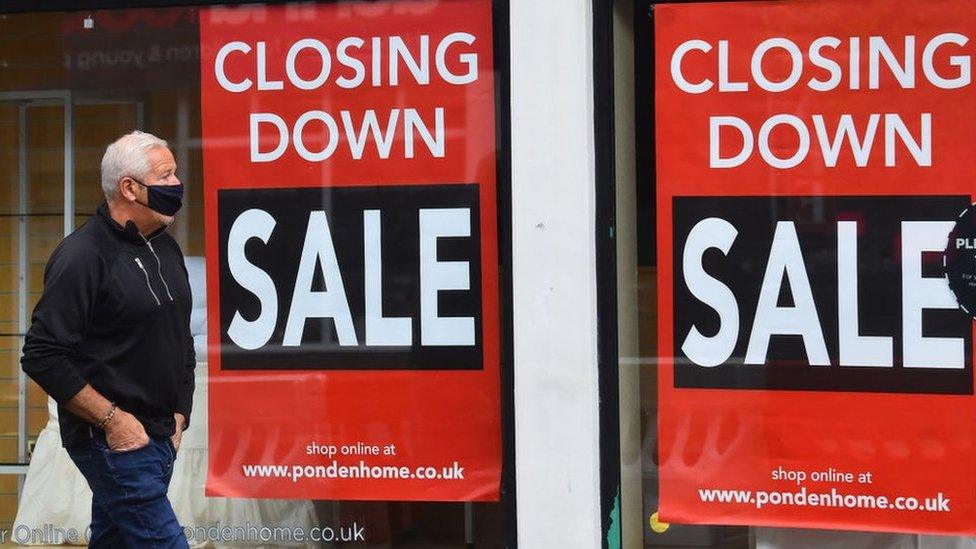
The UK economy grew by just 0.4% in October as the recovery continued to slow in the face of tougher coronavirus restrictions.
The economy remains well below the size it was before the crisis, the Office for National Statistics (ONS) said., external
The UK has been recovering from a record slump earlier this year induced by the first coronavirus lockdown.
But output is expected to shrink again in November after England's second shutdown forced businesses to close.
What is happening in the economy?
October was the sixth consecutive month of growth for the UK after the economy contracted by a record 19.5% in April amid the first lockdown.
The economy initially rebounded at a record rate, but growth has now begun to slow - with October's growth figure down from the 1.1% seen in September.
The economy also remains fragile, with unemployment continuing to rise.
The ONS said there had been some areas of growth during October but the UK economy "still remains around 8% below its pre-pandemic peak".
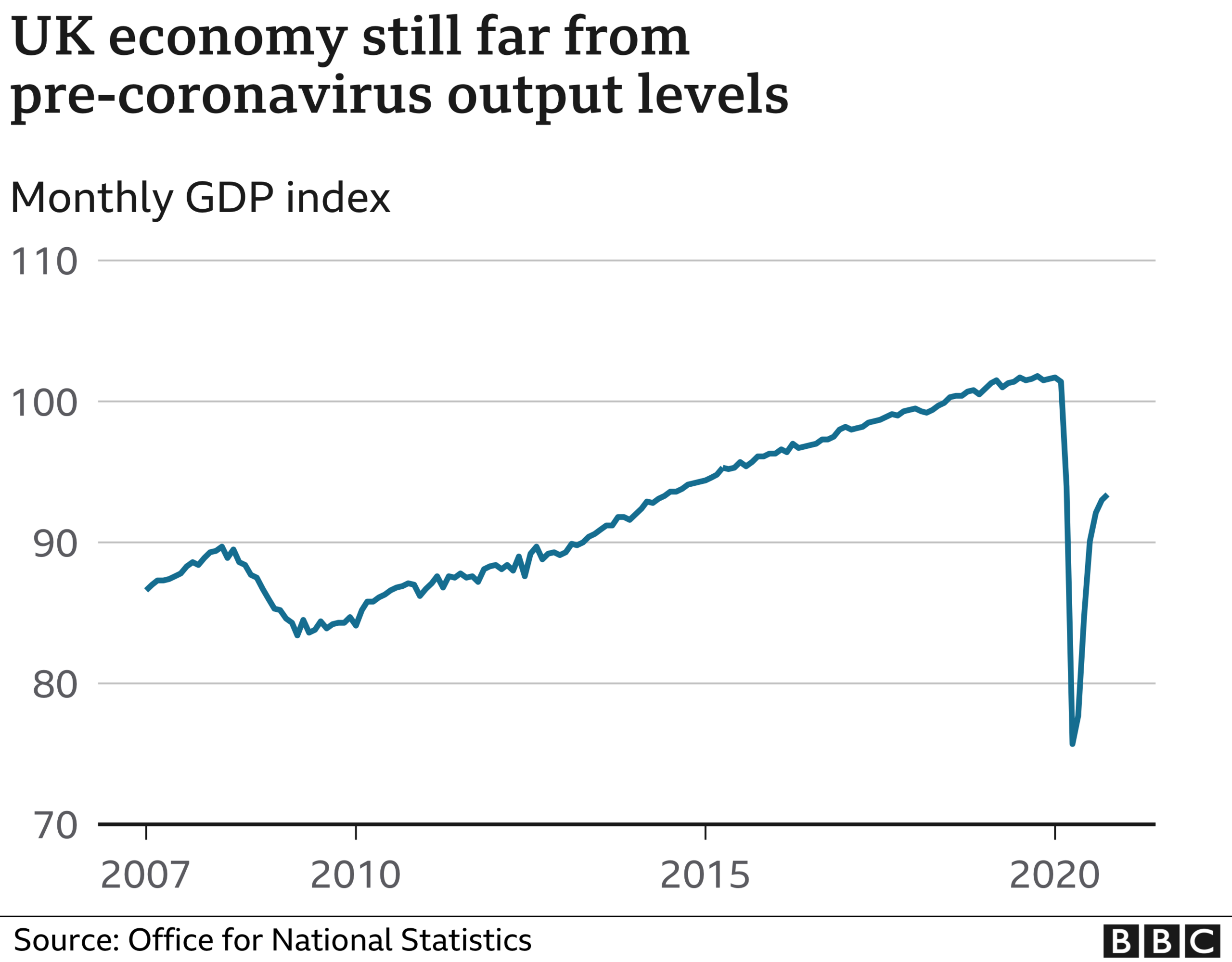
Was it all bad news?
Areas of the economy such as education, retail and car manufacturing grew strongly in October, the ONS said.
But the reintroduction of some coronavirus restrictions saw services growth almost grind to a halt as pubs and restaurants were hit by the 10pm curfew and other measures.
As services are such a big part of the economy, it meant the UK overall "grew only modestly", the ONS said.
Dr Jonathan Gillham, chief economist at PwC, said the latest data "confirms what we already knew - the economy was slowing ahead of the second national lockdown in November".
"Overall, there is still a lack of confidence in the economy, with sectors such as accommodation and food the worst affected."
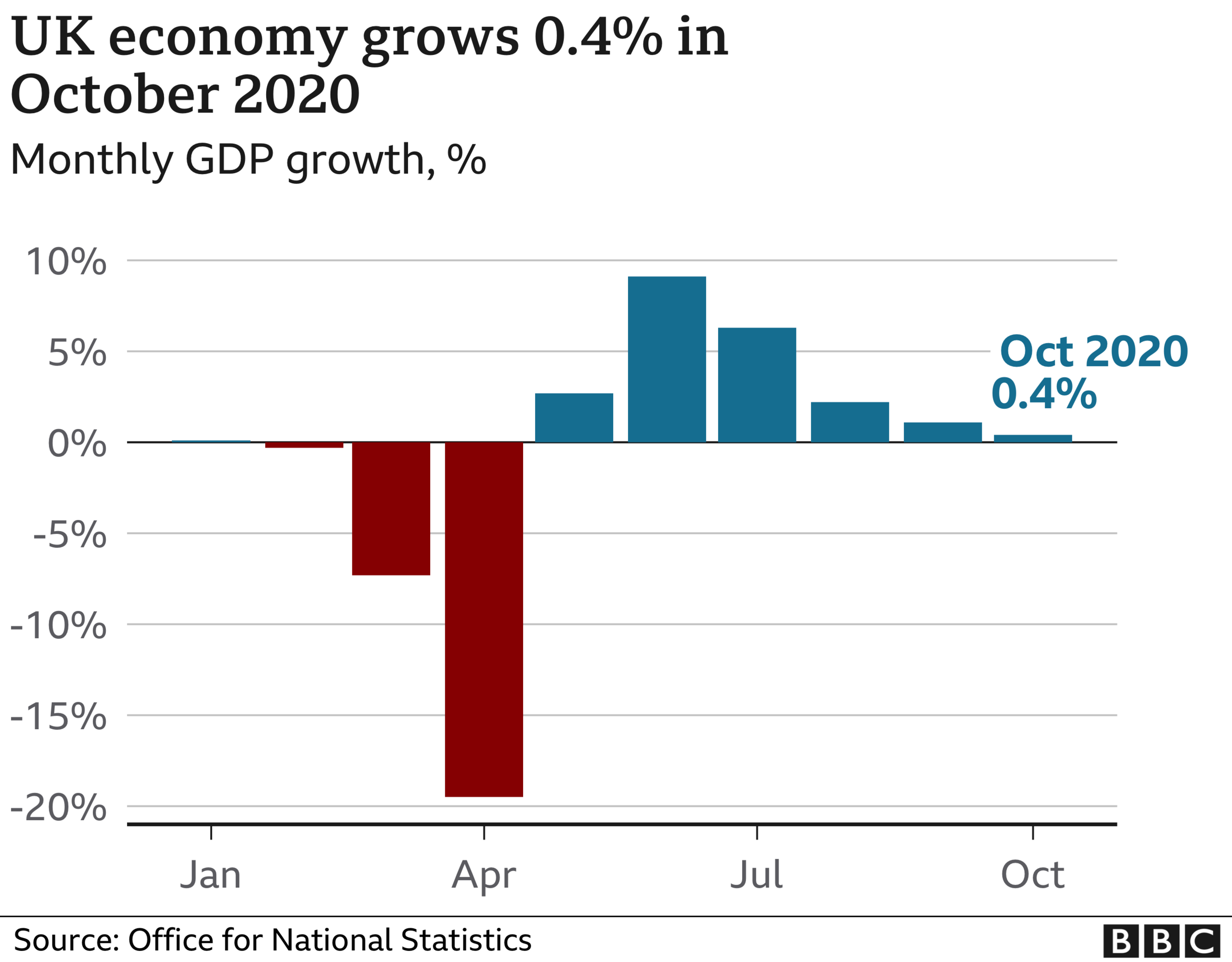

What is GDP?
Gross domestic product (GDP) is the sum (measured in pounds) of the value of goods and services produced in the economy.
But the measurement most people focus on is the percentage change - the growth of the country's economy over a period of time, typically a quarter (three months) or a year.
If the GDP measure is up on the previous three months, the economy is growing. That generally means more wealth and more new jobs.
If it is negative, the economy is shrinking.

How are companies coping?

Oliver Conger says 2021 will be challenging
Oliver Conger runs Rototherm, a high-end manufacturing firm in Port Talbot with 200 staff.
He says Wales' "firebreak" lockdown, from 23 October to 9 November, was challenging from a mental health perspective as many staff had to start working from home again.
"We have had to take extra care with our people and really think about how we look after them," he said.
The business itself did not face the supply issues it saw back in March and April and orders have continued to "creep back up".
But Mr Conger thinks 2021 will be challenging, adding: "We don't see a lot of things picking back up again until the following year."
What is the outlook like?
The latest figures from the ONS pre-date England's second national lockdown in November, which is likely to have had a big impact on the economy, although less so than the first shutdown.
Much of England also remains subject to tough coronavirus curbs, which could affect growth into the new year.
"While a vaccine offers real hope, failure to avoid a disorderly end to the [Brexit] transition period or further lockdown restrictions before a mass vaccine rollout is achieved would severely drag on any economic recovery," said Suren Thiru, head of economics at the British Chambers of Commerce.
Official forecasts predict the UK economy will shrink by 11.3% this year - the biggest decline in 300 years.
The Office for Budgetary Responsibility (OBR), the government's independent forecaster, expects the economy will not return to its pre-crisis size until the end of 2022.
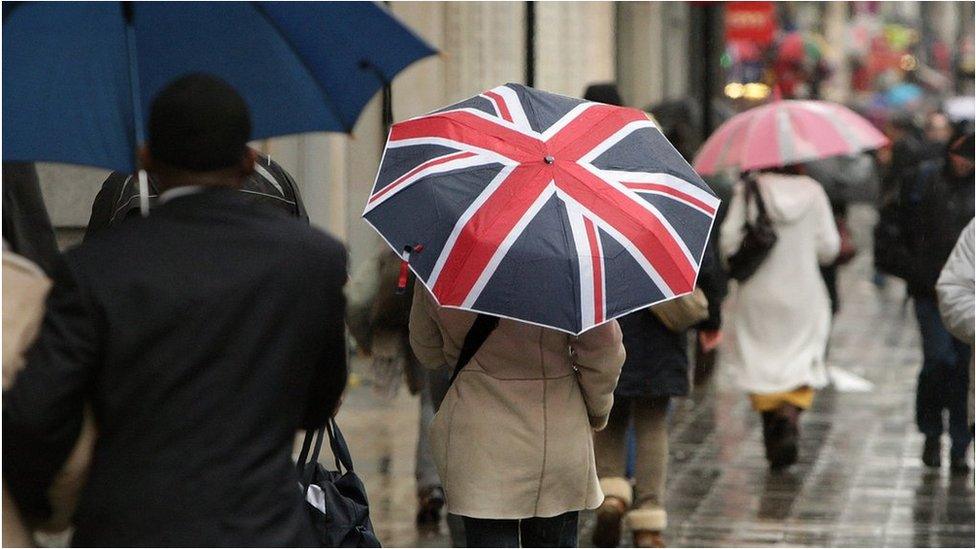
The UK economy is expected to shrink 11.3% this year, the most in 300 years.
What about Brexit?
Yael Selfin, chief economist at KPMG UK, said the recovery could take even longer if the UK fails to strike a post-Brexit trade deal with the EU by 31 December.
The two sides have so far failed to break the deadlock in talks and Foreign Secretary Dominic Raab said it was "unlikely" the negotiations would be extended beyond Sunday.
"GDP could rise by 6.1% next year in the event we get a Brexit deal, while growth could prove lower at 3.3% if there is no deal with a small recession at the start of the year," said Ms Selfin.
What does the government say?
The government has extended the furlough wage support until the end of March in a bid to avert a jobs crisis, but unemployment is still expected to rise to 2.6 million - or 7.5% - by mid-next year.
The most recent unemployment rate - for July to September - was 4.8%, according to the Office for National Statistics (ONS) - an increase of 0.7% over the previous three months.
Commenting on the October figures, Chancellor Rishi Sunak said: "I know people are worried about the winter months, but we will continue to support people through our Plan for Jobs to ensure nobody is left without hope or opportunity."
Anneliese Dodds, Labour's shadow chancellor, said the UK has had the sharpest recession of any G7 economy and was on course for the slowest recovery.
"This is down to the government's irresponsible choices. Its failure to fix test, trace and isolate and chopping and changing over economic support has led to unnecessary job losses and businesses going to the wall."

A terrifying bungee jump

Growth in economic activity of 0.4% in a month wouldn't be bad in another context; if repeated every month that would mean stellar annual growth (such as we haven't seen in decades) of 4.8%.
But we have to remember, the economy this year has done a terrifying bungee jump. After plummeting in the spring, it's bounced since May. In the autumn the bungee cord was slackening.
While manufacturing grew in October, services were up just 0.2% - with more activity in sectors such as healthcare offset by accommodation and food, where hotels and restaurants were struggling with the tiering system and 10pm closing.
A huge 79% of businesses in that sector reported worse business than last year and in the hardest hit sectors - the travel sector and creative arts and entertainment - business was still less than half its pre-pandemic level.
And that's before the renewed lockdown of November in England that is set to cause the UK economy to shrink again.
Business lobby group the CBI is now forecasting the economy won't get back to pre-pandemic levels of activity until the end of 2022 - echoing the official OBR projections, which also anticipate that if there's a no-deal Brexit, the economy won't recover fully until 2024.

- Published25 November 2020
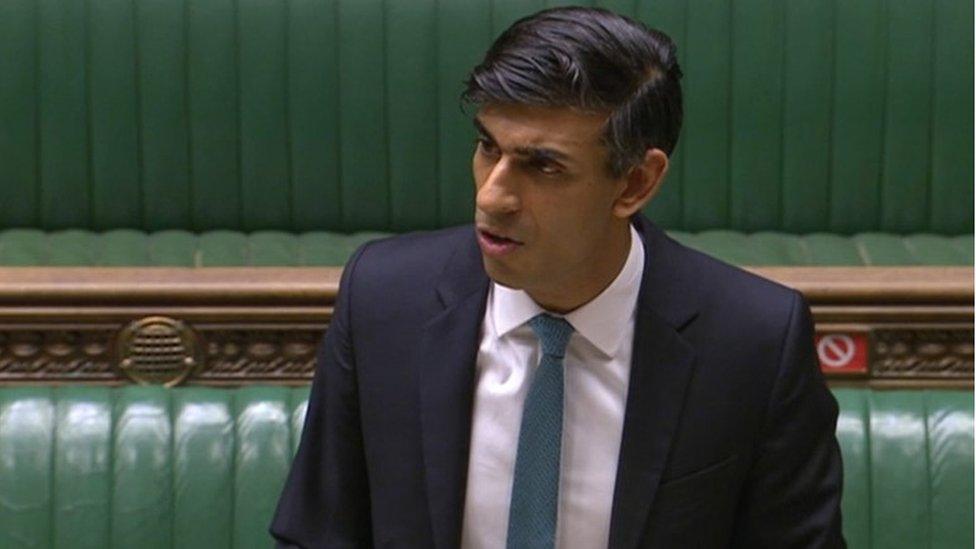
- Published10 November 2020
